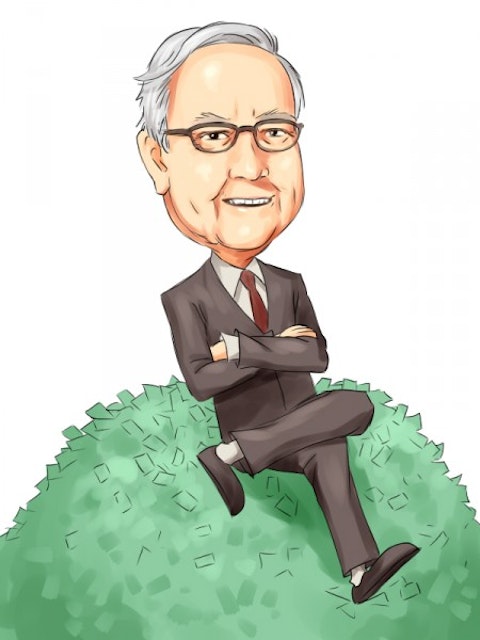David Einhorn, billionaire Chairman of Greenlight Capital Re, Ltd. (NASDAQ:GLRE), has filed a lawsuit against Apple Inc. (NASDAQ:AAPL).
The basis of the legal action is Apple Inc. (NASDAQ:AAPL)’s intent to put forth a proposal at the next shareholder meeting that would make it more difficult to issue preferred stock, in the opinion of Einhorn. As Einhorn spent $250,100 to have lunch with Warren Buffett, chairman of Berkshire Hathaway Inc. (NYSE:BRK.A), back in 2003 and exclaimed about the experience, “To spend time alone with a legend is priceless,” it is safe to say that he is an admirer of “The Oracle of Omaha.” Asking what Warren Buffett would do in a similar situation is now a useful way for Foolish investors to gain insight and hopefully profit from the Einhorn v. Apple showdown.

What Buffett does love is cash to invest, however.
If there is one feature Buffett has always sought in his investing it has been access to the cash being produced by the business operations. Obviously there are many other factors taken into consideration, but Buffett greatly values investments that produce cash that he can use to buy other assets. That is why Berkshire Hathaway does not pay a dividend. This is due to the self-confidence Buffett has in himself as an investor. As Buffett is worth over $50 billion that has been generated through savvy investing, that confidence is well-placed.
This generation of cash is why Buffett favors insurance companies, for example. These entities produce a cash float, which Buffett describes in a Berkshire Hathaway shareholder letter as:
Insurers receive premiums upfront and pay claims later. … This collect-now, pay-later model leaves us holding large sums — money we call “float” — that will eventually go to others. Meanwhile, we get to invest this float for Berkshire’s benefit. …If premiums exceed the total of expenses and eventual losses, we register an underwriting profit that adds to the investment income produced from the float. This combination allows us to enjoy the use of free money — and, better yet, get paid for holding it. Alas, the hope of this happy result attracts intense competition, so vigorous in most years as to cause the P/C industry as a whole to operate at a significant underwriting loss. This loss, in effect, is what the industry pays to hold its float. Usually this cost is fairly low, but in some catastrophe-ridden years the cost from underwriting losses more than eats up the income derived from use of float. …Our float has grown from $16 million in 1967, when we entered the business, to $62 billion at the end of 2009.




